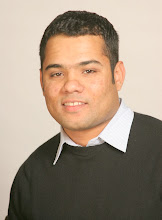More Problems, but Easier Cross-Industry Collaboration: NPower Seattle
Speaking with NPower Seattle's Executive Director, Jamie Green, reinforced much of the research done for this project. With wonderful examples, Jamie highlighted issues of stability versus the need for new ideas. For instance, to maintain a high level of service, people and time must be dedicated solely to that task. However, to attract new clients and keep old clients, NPower Seattle must continually re-invent and be a technology leader. Balancing between maintaining high levels of current service and deciding when to invest in what ventures for innovation remains a challenge for all organizations.
Innovative ideas come from several sources: sometimes clients request new services, philanthropists who donate software, money, technology or time sometimes have ideas or wishes that can be innovative ideas; business partners have stepped forward with suggestions; and the affiliate network sometimes innovates a service or product that NPower Seattle then adopts. Board members and employees also make suggestions and try out new approaches.
However, being a nonprofit also contributes to some of the biggest problems NPower Seattle must face. For innovation, NPower Seattle must balance client needs with existing capabilities and overall mission. The first filter through which innovative ideas pass is whether or not they assist NPower Seattle in meeting their mission of aiding nonprofits through technology. The second is existing capabilities and resources, and some ideas and pilots (like in any business) must be shelved for a later date. Given the large range of nonprofits in Seattle (from multi-million dollar, established ones to newly formed, un-endowed ones, and social services to goods distribution to job placement to legal services), NPower Seattle must consult with each organization and meet them at their current level of technology capacity and technology readiness. Not only that, but NPower Seattle must achieve client satisfaction while charging below-market rates!
However, Jamie identified one of the biggest challenges as just to get people to admit they have an innovative idea. Perhaps employees of nonprofits are just modest, or perhaps it's a worldwide issue, but Jamie finds that often people will talk about issues or solutions they've tried and won't label them as new, innovative or different. Listeners will readily, though, so dialogue and reports of other people's solutions are a key way to access innovative ideas that wouldn't otherwise be brought forward. After all, recognizing innovation has to precede implementing it.
As a nonprofit, NPower Seattle enjoys one main advantage over business: cross-industry collaboration. Jamie told us that people are eager to collaborate and offer advice or expertise to NPower Seattle, giving her a resource base that doesn't exist for most consulting firms due to the competitiveness of the industry. Having a mission for the greater good bypasses that competition and many people are then willing to collaborate.

No comments:
Post a Comment